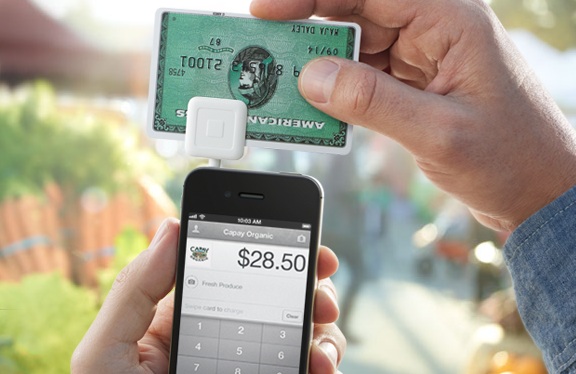PayPal is set to launch a competitor to media darling Square at an event in San Francisco scheduled for tomorrow, according to GigaOm and Bloomberg.
Mobile payment enabler Square has set the benchmark for small business applications in terms of design elegance and simplicity. Here’s what I’ll be looking for in the PayPal announcement:
Hardware
It will be interesting to see if PayPal goes with simple hardware similar to Square’s iconic dongle or tries for a PCI-compliant solution. Such devices are significantly more expensive, require power and are more secure. Competitor VeriFone tried to make a big deal out of the Square dongle’s security risks last year with an open letter claiming, “In less than an hour, any reasonably skilled programmer can write an application that will “skim” – or steal – a consumer’s financial and personal information right off the card utilizing an easily obtained Square card reader.”
I consider VeriFone’s attempt just a lot of fearmongering. All the information you need to process a credit card transaction is printed on the piece of plastic you give to your waiter, so by comparison the Square dongle’s security risk is trivial.
User interface
As much as people like to focus on the Square dongle, the real brilliance of the service is in the elegance and simplicity of the user interface of the applications. There are some tweaks that I’d make to it, but on the whole it does what it needs to do quickly and efficiently.
That’s the exact opposite of PayPal’s online interfaces. Every time I complete a PayPal checkout, I think I hear a user-interface designer crying. The design isn’t geared toward completing your task as fast as possible; it’s about avoiding the traps that PayPal puts in place to get you to do what it wants. The only flow that I’ve seen that is consistently worse is United’s online check in, which tries to get you to buy premium seats, extra bonus miles, priority access, etc.
Time to task completion is even more important in retail point of sale than online, because a customer may be holding up the line.
Fees
One of the big potential advantages that PayPal has is that it has money on file. Many of PayPal’s more than 100 million active users keep money in their PayPal accounts. Because this doesn’t have to hit the credit card or debit card networks (which Square’s service currently does), PayPal could offer such transactions for free to merchants. As of December 31, PayPal had more than $4 billion on file, according to eBay’s annual report.
But according to the Bloomberg report, PayPal isn’t going to be that aggressive. Citing unnamed sources, Bloomberg says that PayPal will charge 2.70%, compared with the 2.75% that Square is charging. For this market, a 5 basis point difference is irrelevant.
Distribution
Getting the reader into hands of small businesses is going to be critical. Square readers can be purchased at more than 11,000 retail locations, including Apple stores, UPS stores, Best Buy, and Target. These are all places small businesses frequent.
International
PayPal is available in 190 markets and supports 25 currencies. If PayPal launches in markets other than the U.S., that’s a big deal.
With as many users as PayPal has, it would be foolish to dismiss them, despite Square’s early lead in the offline payments space. Square’s currently at a run rate of $4 billion in transactions annually. In 2011, PayPal processed more than $118 billion in transactions.
If I were at PayPal and trying to compete aggressively with Square, here’s what I’d do:
- Eliminate the transaction fee on all transactions under $25. This would be a significant differentiator. Low dollar value transactions are a money-loser for Square; they could be free for PayPal.
- Rebate a substantial portion of fees for money-on-file transactions.
- Seed the existing 100 million+ customer base with special offers to use PayPal at small offline retailers, much as American Express has done.
- Focus on consumer- and merchant-friendliness in the application and customer service.
 Rocky Agrawal is an analyst focused on the intersection of local, social, and mobile. He is a principal analyst at reDesign mobile. Previously, he launched local and mobile products for Microsoft and AOL. He blogs at http://blog.agrawals.org and tweets at @rakeshlobster.
Rocky Agrawal is an analyst focused on the intersection of local, social, and mobile. He is a principal analyst at reDesign mobile. Previously, he launched local and mobile products for Microsoft and AOL. He blogs at http://blog.agrawals.org and tweets at @rakeshlobster.


